In November of 2010, almost a year and a half ago, Karin Huber and David Waldmeier set off on a journey. They are still traveling, and don’t plan on returning to their home in Switzerland until June of 2012. If you’re jealous like we are, keep reading, because they’ve had some amazing experiences and we had the opportunity to interview them about their travel adventures.
While spending time as hobos moving slowly around the world, they have blogged about their travels at www.hobos.ch (in German with English and Spanish translations). They even carry a GPS with them, leading to some very detailed route maps on their website. We asked them a number of questions about their trip, and here is what they said:
Where did you go?
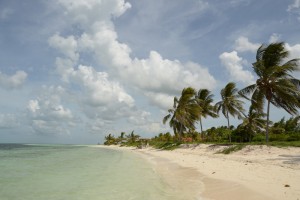
We started in Argentina in November, 2010, and spent the first nine months in South America (Chile, Brazil, Bolivia, Peru, Ecuador & Columbia). We continued traveling north to Cuba and Canada. At that point one of our dreams came true and we crossed the pacific ocean from Vancouver to Tokyo on a freight ship. After five amazing weeks in Japan we left for the Philippines from where we continued to New Zealand. Our last flight took us from Christchurch to Kuala Lumpur in Malaysia. Many hours in buses and trains brought us to our current location: China.
Find Shanghai Hostels Near the Bund
Why did you choose those countries?
Our plan was not to have one! We only booked a one way flight from Switzerland to Buenos Aires and decided spontaneously. Recommendations from other travelers are a great help, as well as the internet with all the travel forums and travel blogs. Also very important is the climate and the traveling season in general. The roads for example can get very dangerous during the rainy season. We realized that cultural and climate changes are really important to make the journey interesting. After spending weeks in the heights of the freezing Andes Mountains we were looking forward to go to a nice beach in Brazil. Remaining independent was really important to us. We have good equipment including a tent and warm sleeping bag. Worst case we can sleep almost anywhere.
Find Auckland Hostels Near the Airport
How do you usually get around?
We try to avoid flights. Usually we travel by bus or train. This way you can get in touch with the locals and their culture much easier.
What’s it like traveling for a long period of time?
It took quite some time until we were able to get away from it all. In our case it took around three months. From then on we were living in our own world and could do whatever we wanted to do. We’re enjoying the freedom very much. The relationship between us became better and things just work without many words. After a while we each had our own tasks. If one of us is not feeling well we can motivate each other. It is just important to appreciate every single day of the trip. We also think that it is important to have a next big goal, this way we can always look forward to something.
What motivated you to go on your trip?
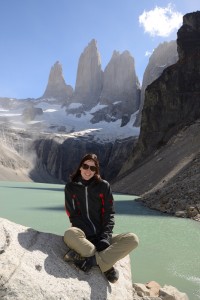
We just wanted to have a change from our everyday life. The world is so big, and we wanted to discover it, learn about other cultures, languages, foods, religions and lifestyles. For us it was also a challenge to just make a cut in our lives and do something we do not know how it will end. We also loved the idea of total freedom, to decide every morning what to do next, without any restrictions.
Where are you going?
We will stay in China for another three weeks. From China we are going to take the trans-Siberian railway back to Europe. We hope to visit some countries in eastern Europe at the end of our trip.
Find Popular Hostels in London
Why and how did you decide on those locations?
The plan was not to fly anymore. First we planned to start our trip by taking the train from Europe to China, but the season was not the best. Now we just end the trip that way.
What did you learn about yourself?
- To be more patient; many things don’t work out as expected, you just need to learn to accept it.
- To be more enduring; you learn to stay in buses for 30+ hours, you also learn to wait for a bus which is late for a couple of hours
- We have come to know our preferences better; at the beginning we couldn’t tell if we prefer the mountains or the beach, now we know. We also learned to say what we think, if we are not satisfied with a certain service, we tell them.
- We can handle stress situation much better now; on a trip you will get confronted with many of these situation. After a while we could take it easy.
- To have no prejudices: treat every person the same way. Now it is also easier for us to assess a person’s character.
What’s the best place you’ve ever visited so far (and why)?
That is really hard to say. The special moments we will always remember don’t need to be at specific places but can be encounters with other people. Generally speaking, we liked South America because family seems to be more important than in the Western world. Every city and village has a central square where people gather to talk, play or dance. Some really nice places we have seen so far include: Patagonia, the whales on Península Valdés, Easter Island, Galapagos, Iguazu Falls, Salar de Uyuni, Cordillera Blanca, Macchu Piccu, Japan, the great walks in New Zealand and the Meili Xue Shan moutains in China.
How did you determine (or manage) your budget for your trip?
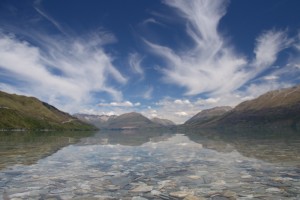
We budgeted to spend about 20,000 Swiss francs per person per year (about US $20,000). When we look at the expenses today we have only spent about 15,900 francs per year per person. The estimated budget of 20,000 francs per year was based on information of friends of us who were doing a similar trip. Budget Your Trip helps to keep control over our expenses. It is also really fun to know how much you spend in what country and in what category. Sometimes it feels like a game.
Any advice for other travelers?
- The best plan is not to have a plan: If you are doing a trip around the world and time is not a concern, do not book any flights or accommodation in advance! We met people that liked a certain place but they had to move on because they already booked the next flights/hotels. On the other hand we also met travelers that did not like to stay where they were, but they had to because they already booked an apartment in advance.
- Stay flexible: Don’t make any appointments with friends or family on your trip a couple of month in advance. It is of course amazing to meet them, but only if they are spontaneous enough to book a flight last minute where ever you are. Your visitors will most likely have a completely different style of traveling, they are willing to spend a lot of money and they probably want to see a lot of tourist attractions in a short time – that’s mostly not the way of traveling if you are on a trip around the world .
- Bring good equipment: Even though you can buy almost anything for a better price in Asian countries and South America it is probably best to buy all the equipment at home. This way you can test it before you actually take off and you can get used to it. Most probably the quality will be better when you buy it at home. We met too many people in Patagonia sleep in tents with water in it :)
- Be prepared: check all the travel alerts before you visit a new place. Also take note of the typical scams, you can find them in any travel guidebook. Most incidents can be avoided by being prepared. Always be careful with your valuables.
- Choose your travel dates carefully: always check the climate and weather. You don’t want to be in Bolivia during the rainy season. Be sure not to travel during any public holidays or around politically sensitive dates.
- Travel slow: if you are traveling slow, you will be able to get to know the culture much better. You will also have the chance to visit places which are off the beaten track. We never try to stay less then four weeks in a country.
- Always appreciate that you can go traveling. It is a privilege to be able to travel for that long.
This sounds like an amazing trip! Thanks guys, and we hope you enjoy the rest of it.
You can follow David and Karin’s adventures and see more of their amazing photos at www.hobos.ch.
Bryan has visited 56 countries, which is exactly one more country than his wife, and she won’t let him forget it! Also an avid photographer, he enjoys entrenching himself within the local culture in order to learn more about the people of a place. He is the co-founder of Budget Your Trip and loves a good adventure, an exotic meal, or a passionate conversation about global events. And he also loves to find out how much stuff costs.

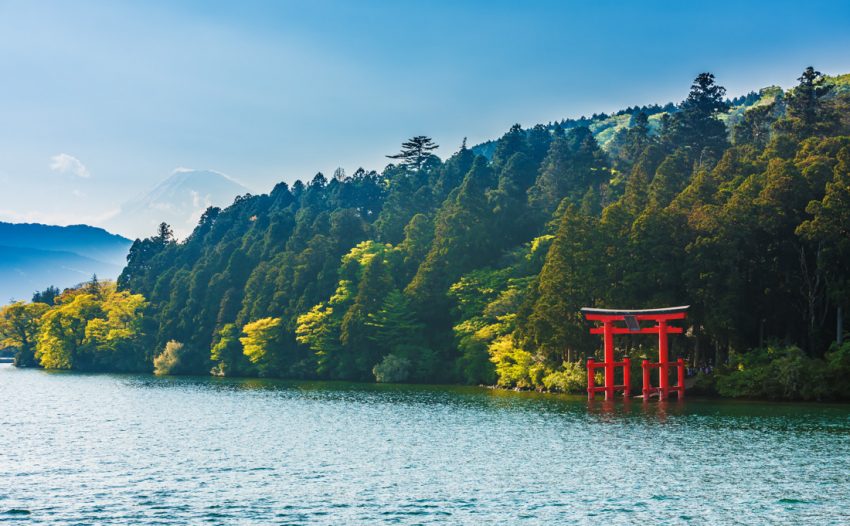
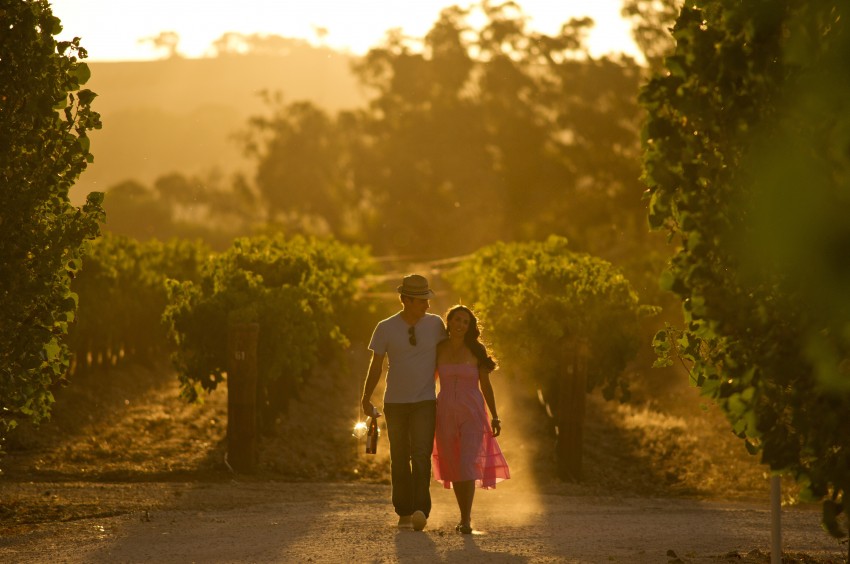
So how would someone fund such a trip. Are you working odd jobs along the way? or was it just savings?
No we did not work along the way. Initially we planed to do some work but we realized that we prefer travelling :)
As part of our RTW trip planning guide, we have a short section on saving money: http://www.budgetyourtrip.com/guide/savingmoney.php
While a lot of people do choose to work on their trips, in our experience, you make more money doing your normal job at home, so working a few extra months while minimizing your expenses can really add up. This assumes that you are saving money to begin with, of course.
This is an excellent story and a good “things to check” list. I’d like to keep in touch as this list would both be helpful for some of my fellow travelers and I’m interested to see how this trips turns out for you. If you guys could pick a few favorite experiences, would you mind sharing them?